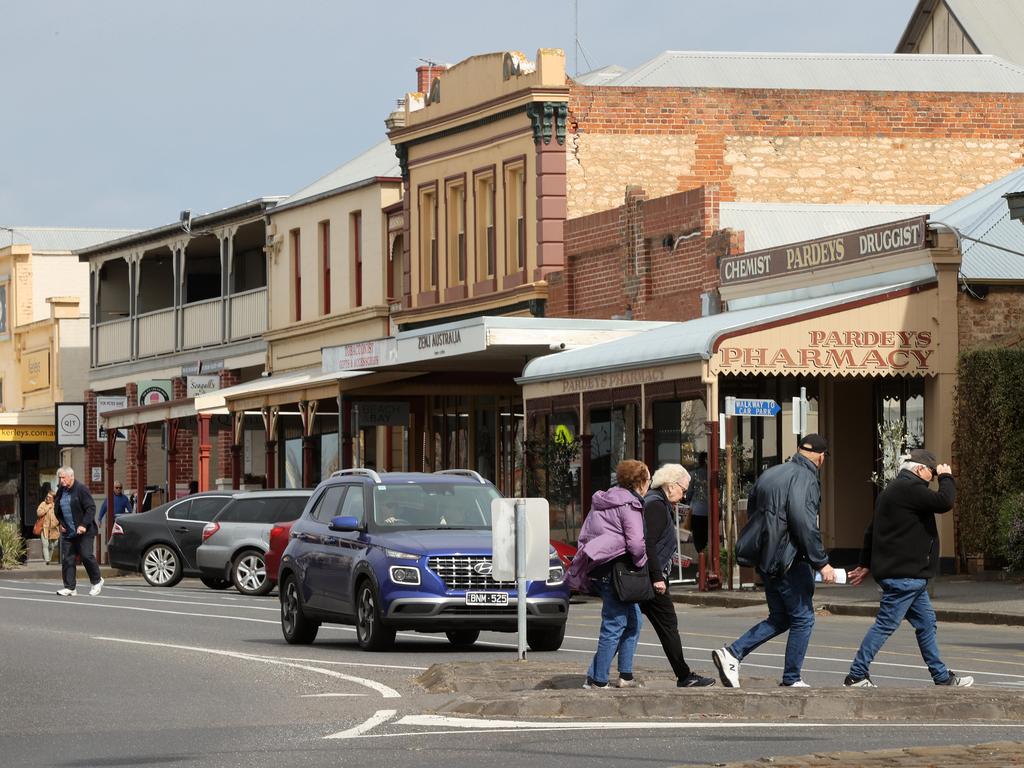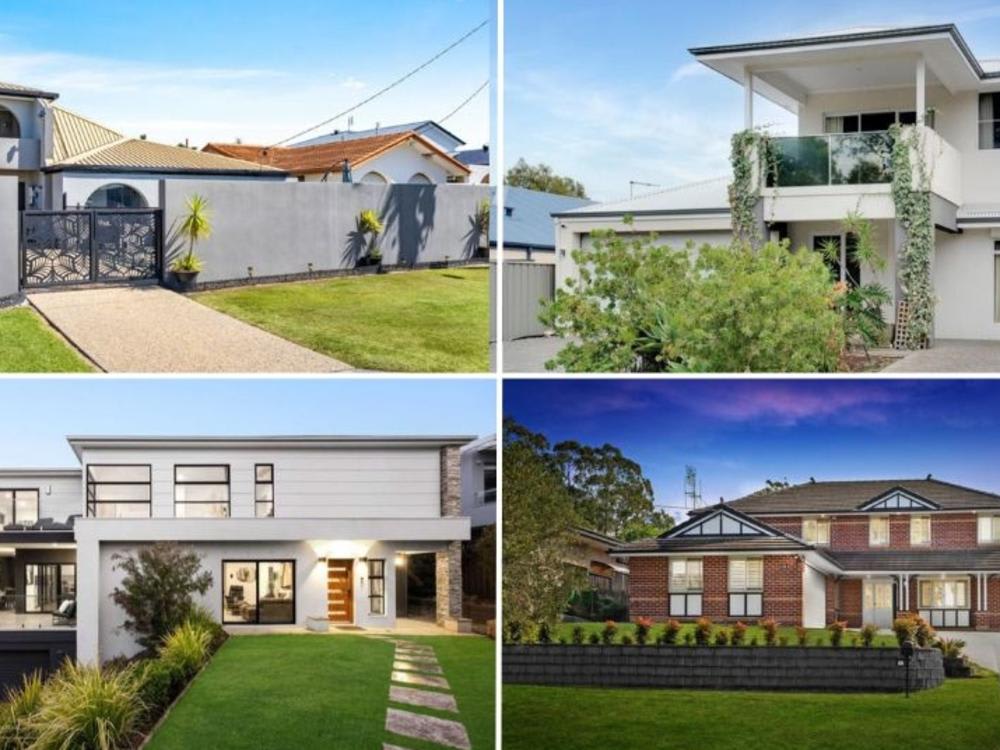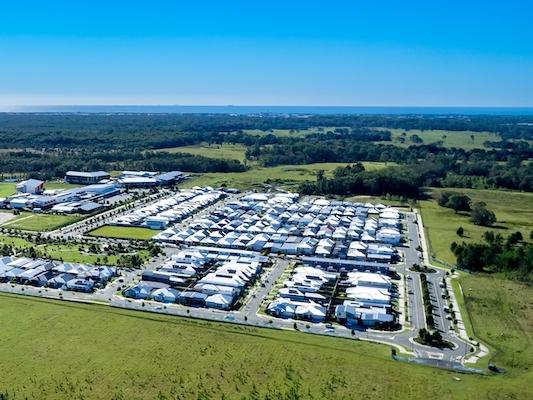
A coastal community that’s become a hot pocket for people moving to escape the city holds the record as the nation’s most tightly-held real estate.
The Borough of Queenscliffe might carry the unkind reputation of being “God’s waiting room”, being ranked the nation’s oldest local government area by median age, but in most cases it’s home buyers who are stuck in the queue waiting for the right property to come along.
Queenscliff and Point Lonsdale have been the choice for generations of holiday home owners, but times are changing.
The borough has an average hold period of 18 years for houses, the longest of any area in the Geelong region.
RELATED: Empty Vic block of land hits near $1.3m paydirt
Geelong’s big shift as a regional hotspot for home buyers
Holey Moley: Anglesea home has private seven-hole mini golf course
It’s been 27 years since the three-bedroom house at 77 King St, Queenscliff, was last traded. The home with water views is now on the market with $2.8m price hopes.
It’s been 27 years since the three-bedroom house at 77 King St, Queenscliff, was last traded. The home with water views is now on the market with $2.8m price hopes.
But recent home sales has seen the borough earning one of the biggest jumps in internal migration, according to new research from the Regional Australia Institute.
RT Edgar Bellarine director Felix Hakins said retirees dominate the market, but others were in the mix especially since the pandemic, when more families discovered they could live on the coast and commute to work in Melbourne several days a week.
But a changing market was opening the door to more buyers.
“Unfortunately, with the spike in land tax, there has been some properties that are coming on that have been with a family for generations that can’t sustain that land tax cost,” Mr Hakins said.
“We’re lucky being a seaside destination that’s only an hour and a bit outside Melbourne that it’s still very attractive and is still bustling with holiday home owners.”
Many older people were adopting a “buy now, rent first, move later” strategy to lock in a preferred position in the tightly held towns several years before they retired.
Original constructed as his family home by local builder David McDonald, the five-bedroom residence at 17 Albert St, Point Lonsdale, occupies a prime location and is selling with $3.4m price hopes.
Original constructed as his family home by local builder David McDonald, the five-bedroom residence at 17 Albert St, Point Lonsdale, occupies a prime location and is selling with $3.4m price hopes.
“We’ve actually got buyers who have sold their property in Melbourne and they’re ready to buy in the borough, and they want a particular type of home,” he said.
But younger families who have enjoyed the community, participating in nippers and sending kids to local schools, have made a permanent move, he said.
The median house price in Queenscliff is $1.337m, with Point Lonsdale at $1.17m, according to PropTrack.
Data shows just 14 houses sold in Queenscliff in the year to December, although 36 were up for sale.
Developments such as Lonsdale Links and The Point have swelled annual property sales in Point Lonsdale to 59, with 96 properties up for sale.
The five-bedroom house at 10 Werry Rd, Point Lonsdale, is on the market for $1.46m to $1.6m. It was last traded in 1985.
Views across The Rip are front at centre at 6 The Esplanade, Queenscliff, which is listed for sale with price hopes from $6.35m to $6.985m.
Other areas with the longest average hold time between 14 and 17 years include Anglesea, Portarlington, Jan Juc, Thomson, Clifton Springs, Manifold Heights and Herne Hill.
Areas that had really long hold times usually appealed to people at different life stages, PropTrack senior economist Anne Flaherty said.
“Those two life stages are generally when people are raising families and then when people find their place where they want to retire,” she said.
“And a lot of these, particularly in the Geelong area and the more scenic towns, are very appealing to a lot of older people who are moving to that next phase of their life.
“They’re not close to CBDs, so they don’t attract that younger worker cohort, people tend to settle in these areas as their forever homes.”
The cost of property maintenance in an often unforgiving coastal bushland environment was bringing typically older homeowners to bring to market properties, Hayden, Anglesea director Darcy Bennett said.
Mr Bennett said Anglesea’s median house prices doubled during the pandemic, boosting the value of homes people had owned for upwards of 50 years.
There have been 54 sales in the past year, PropTrack data shows.
The three-bedroom house at 14 McMillan St, Anglesea, has been in the same family since it was built in 1960. It’s now on the market with $1.65m price hopes.
The four-bedroom house at 4 Third Ave, Anglesea, comes to market after 14 years with price hopes from $2.55m to $2.65m.
He said typical buyers in Anglesea fell into three categories – young families (though not first-time buyers) looking to break into the coastal market and live with their kids; holiday home buyers; and Melbourne-based Baby Boomers, who had sold their big family home and were looking to live in Anglesea while maintaining a city apartment to see their family.
Mr Bennett said Anglesea remained landlocked, leaving little room for development, while strict planning rules limiting new block sizes to a minimum 800sq m or more than 1600sq m in certain pockets also dictated the total area allowed for buildings and permeable surfaces.
Mr Bennett said Melbourne people made up 50 per cent of out-of-town buyers, with the remaining drawn from Torquay, Geelong, Ballarat and other parts of regional Victoria.
Anglesea has a $1.49m median house price, which has dropped 4 per cent in a year.
However, the typical house was still worth almost $550,000 more than five years ago.






